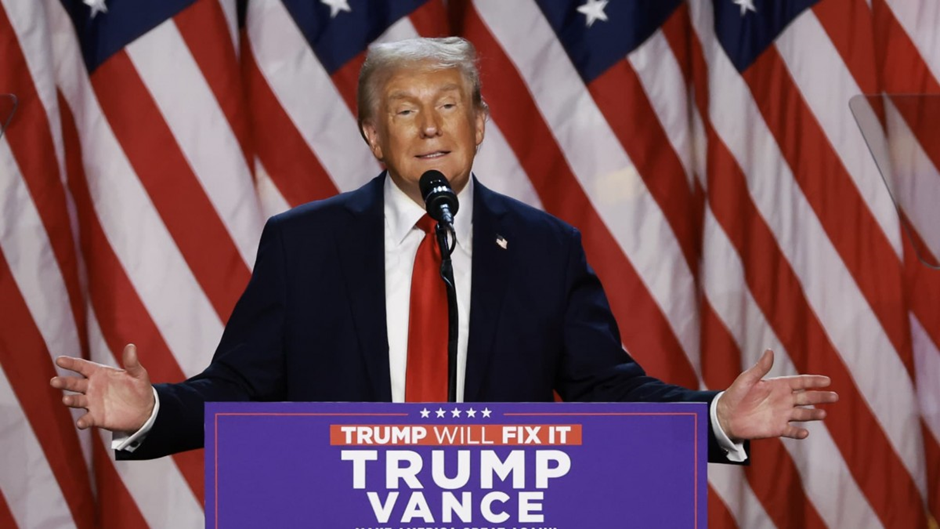Tổng số bài đăng 397.
Contrary to some previous predictions, candidate Donald Trump once again caused a major surprise by securing a decisive victory, winning more than 270 electoral votes in the 2024 US presidential election, far surpassing his opponent Kamala Harris. Trump's dream of returning to the White House for a second term has now come true, after being thwarted in the 2020 election, when Joe Biden clinched a last-minute victory, stunning Trump.

Trump’s Victory and Its Global Impact
Although the United States' position as the world’s sole "superpower" may no longer be as dominant as before, the results of the US election still have significant implications for global issues. In terms of foreign policy, the upcoming Trump administration is expected to revert to the "America First" approach, similar to his first term of isolationism. While it may not be as extreme as before, it will likely involve reducing ties with allies, cutting investment in international alliances, and de-emphasizing the balance of security and economic interests.
Trump’s victory in the race for the White House has been welcomed by many countries around the world, and leaders across Europe, including from Germany, France, Italy, the UK, Hungary, Austria, the Netherlands, Spain, Turkey, and Ukraine, have extended their congratulations. In Southeast Asia, leaders from countries such as Vietnam, the Philippines, and Malaysia have also sent congratulatory messages to the 47th President of the United States.
Receiving congratulations from world leaders, Trump declared on November 6th that he had been granted "the power" to lead the country. If he follows through on even a small portion of his commitments, such as imposing higher trade tariffs, removing regulations that allow more oil drilling, and placing more demands on America’s NATO partners, the pressure on government finances, inflation, economic growth, and interest rates will be felt in every corner of the world.
Trump's return to the White House is expected to have profound and urgent economic impacts on the rest of the world. Analysts predict that the new administration will make policy adjustments aimed at denying the legacy of the previous administration, continuing unfinished business from his first term four years ago. Trump’s Republican Party has also secured control of the Senate and made gains in the House, which could make it easier for the president to legislate his proposals and push through important appointments.
Trade Concerns in ASEAN Under the New Administration
Throughout the US election campaign, many Southeast Asian countries were especially concerned and closely monitoring Trump’s commitment to impose tariffs of 10% to 20% on imports from all countries. This was seen as a major challenge for a region that relies heavily on exports to the US, such as ASEAN nations.
Many experts believe that Trump’s second term will not cause as many difficulties for ASEAN countries as it will for Europe or Northeast Asia, as ASEAN has experience in dealing with policies that were seen as "harsh" during Trump’s first term and will quickly adapt to the new reality to protect their interests.
However, some countries that are highly dependent on exports, such as Vietnam and Singapore, will need to pay special attention because the US remains an extremely important trade market. During Trump’s first term, there were periods when relations between Vietnam and the US soured, as Vietnam was one of the countries with a large trade surplus with the US. In 2019, Trump called Vietnam the "worst abuser" in trade with the US (worse than China) when Vietnam’s trade surplus with the US reached about 51 billion euros ($54 billion). In the final months of his first term, the Trump administration formally initiated procedures to sanction Vietnam for alleged currency manipulation, although the Biden administration later abandoned this move.
Not only Vietnam and Singapore, but nearly all Southeast Asian countries are also net exporters to the US. With the exception of Laos, they all consider the US one of their top three export markets. Therefore, overall trade in the region will likely face significant disruptions if the Trump administration follows through on its commitment to impose tariffs of 10% to 20% on imports from all countries, in addition to the 60% tariff on all imports from China.
Oxford Economics recently estimated that the proposed tariffs by Trump could lead to a 3% decline in exports from "non-China Asia." Some Southeast Asian economies may face declines greater than this 3% threshold.
In addition to the general import tariffs, some experts suggest that certain Southeast Asian countries, particularly Vietnam and Malaysia, could actually benefit from the new administration if Trump imposes the 60% tariff on Chinese goods. This could trigger a wave of divestment by global companies from China, leading to capital flowing out of China and into Southeast Asia, as was seen after the Trump administration began imposing tariffs on Chinese goods in 2018.









